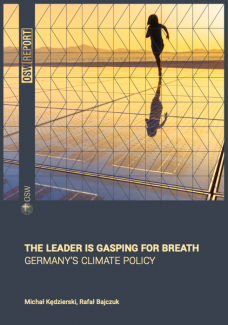The leader is gasping for breath

For years, Germany has claimed to be the leader of global climate policy and has continued to raise the issue of global warming on the international forum. All over the world, Germany is associated with the transition to renewable energy sources. The German word for this transition, Energiewende, has become a permanent entry in the glossary of terms used by energy experts. Since the last decade, Germany’s ambitious goals and its ‘green’ image have increasingly clashed with numerous problems faced by this transition. Measures carried out by successive governments were inconsistent with what had initially been declared. The German authorities lacked the determination to implement solutions which could potentially undermine the interests of influential industrial, business and social groups. Germany’s cautious attitude to the EU’s climate policy reform resulted in it being referred to as a ‘brake’ on the progress of this policy. Instead of positioning itself as an active leader, Berlin took up the inconvenient role of an actor responding to external initiatives.
A sine qua non for Germany to be able to maintain its lead in international climate policy will involve it regaining its credibility as the leader of actions to combat global warming. This can only happen once Germany resolves its problems with Energiewende and embarks on a path to emissions reduction in line with the adopted targets.




